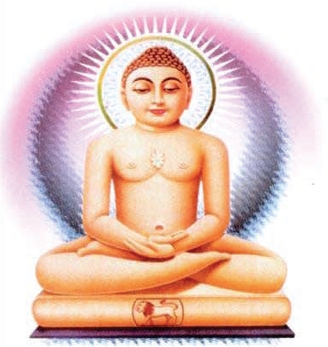
Bhavnas in Jainism described about the nature of soul. It tells that the ultimate aim of life is to attain Nirvana or Moksha.
Bhavnas in Jainism relates to the true nature of life. It describes about the soul that remains detached from all worldly attachments and even from the body. Thus, all humans need to follow the path of truth to attain Moksha or Nirvana.
Jain religion puts a significant stress on the thought process of a human being. An individual`s behaviour and his actions are the reflection of his internal thoughts. Thus to have pure thoughts, and to drive out the evil ones, Jainism recommends meditating upon the following twelve thoughts or Bhavnas. The twelve Bhavnas deal with the subject matter of one`s meditation. It also describes about the ways to occupy one`s mind with useful, religious, beneficial, serene, harmless, spiritually advancing, Karma. Covering a wide field of teachings of Jainism they serve as aids to divine progress, produce detachment, and help to take the path of renunciation. They are reflections upon the key facts of life. These reflections are also called Bhavnas (aspirations).
Anitya Bhavna:
It explains that everything that exists in the world, such as, life, youth, wealth, property, etc. are transient or subject to alteration. Nothing in the cosmos is permanent, although the whole cosmos is constant. Thus to remain detached from all earthly attachments one needs to concentrate on divine values. This helps in attaining ultimate liberty for the soul.
Asarana Bhavna:
Asarana Bhavna states that man is helpless against death, old age, and disease. The only way he can overcome death and disease is by destroying all his karma. The soul is his own saviour. Thus, to attain total liberty and nirvana, one follows the true path and to the five best personalities which are Arihant, Siddha, Acharya, Upadhyay and Sadhus.
Samsara Bhavna:
Samsara Bhavna explains that the soul transmigrates from one life to the other in any of the four forms, human, animal, hellish, and heavenly. The continual cycle of birth, life, and death is full of pain and sorrows. There are no permanent worldly relations like father, mother, friend, foe, etc. the realisation of this kind of thought helps to minimize or stop any attachments to anybody, other life forms or objects. The soul must attain ultimate liberty from it, which is nirvana or Moksha.
Ekatva Bhavna:
Ekatva Bhavna states that the soul is solitary and lonely in existence. The soul takes birth alone and departs alone from the life form. It is responsible for its own actions and karmas. The soul will enjoy the fruits, and suffer bad consequences of its own action alone. Such thoughts help in stimulating his efforts to get rid of karmas by his own initiative and to lead a religious life.
Anyatva Bhavna:
Anyatva Bhavna divulges that the soul remains detached from all objects or life forms of the world. Even the body does not belong to him. Thus, at the time of death, the soul leaves the body behind. The body is matter, while the soul is all consciousness. The soul thus should not develop attachment for worldly objects, and other life forms. He should not allow himself to be controlled by cravings, greediness, and urges of the body.
Asuci Bhavna:
Asuci Bhavna describes the constituent element of one`s body. It is made of impure things like blood, bones, flesh, etc. and generates impure things like perspiration, urine, stool, etc. however, the soul, which resides within the body, remains unattached to it. It is thus pure. With time the body ultimately becomes nonexistent, but the soul is timeless. Thus one should not remain attached to the body.
Asrava Bhavna:
It tells about karma streaming into the soul. Every time he enjoys or suffers through the senses like touch, taste, smell, sight, and hearing he makes his karma increase. This thought will make him more careful, and will try to stop the influx of karmas.
Samvara Bhavna:
This Bhavna tells about stopping evil thoughts, and becomes absorbed in attaining divine knowledge, meditation, etc. This prevents the influx of karma.
Nirjara Bhavna:
Nirjara Bhavna enlightens about the evil consequences of karma. It also tells to destroy the previously acquired karma by austerity and meditation.
Loka Bhavna:
Loka Bhavna explains about the real nature of this cosmos. If one judges from the standpoint of substance, it is timeless but if it is judged from the standpoint of modification it is transitory. Thus all objects of the world come into existence and perish. This fact helps one realise the true nature of reality which is necessary for right knowledge.
Bodhi-durlabha Bhavna:
This Bhavna narrates that it is very difficult for the transmigrating soul to acquire right faith, right knowledge and right conduct in this world. Thus, when a person gets the opportunity to be a religious person he needs to take the advantage. He must try to develop right religious talent. This thought will strengthen one`s effort to achieve them, and live accordingly.
Dharma Bhavna:
Dharma Bhavna elucidates about the true preceptor, Holy Scriptures, and religions are excellent shelters in this world that is full of agony. All other things lead to despair and suffering.